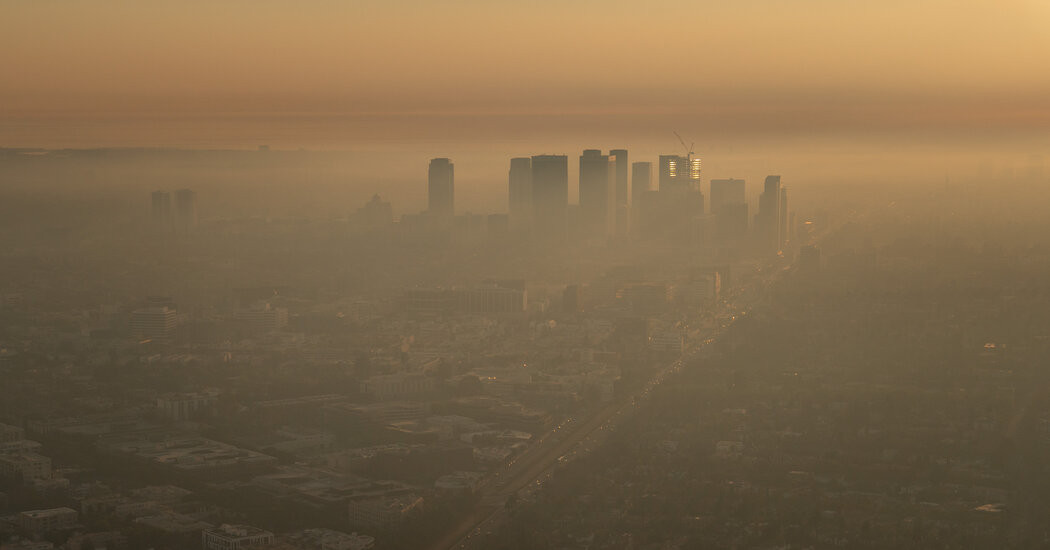

A reporter, an L.A. native, has watched movies and TV destroy her hometown for years, but nothing can prepare someone for seeing real devastation.
I grew up in Los Angeles, first in a canyon enclave minutes from the beach, then on a wide street in the Pacific Palisades. This means that I have spent my life watching my hometown destroyed onscreen. In films and series, Los Angeles has endured meteor strikes, alien invasions, fires, floods, zombies, volcanoes, seismic catastrophe, multiple Sharknados. To live in Los Angeles as a moviegoer or a TV watcher is to see Hollywood delight in its ruin. Often I shared that delight.
“No other city seems to excite such dark rapture,” Mike Davis, a scholar who taxonomized the city’s destruction in fiction, wrote in 1998. Davis dates the earliest examples to 1909. Contemporary shows like Fox’s bonkers first-response drama “9-1-1,” which has besieged the city with an earthquake, a landslide and the destruction of the Santa Monica Pier by tidal wave ensure that the hits keep coming. Fire exerts its own dazzle, birthing shows like “L.A. Firefighters” and “Emergency: L.A.” as well as the docudrama “L.A. Fire & Rescue,” as well as a wealth of B-movies such as “Heat Twister.”
“The city burning is Los Angeles’s deepest image of itself,” Joan Didion wrote in an essay titled “The Santa Anas.” Several friends forwarded it to me this week, as wildfires burned through the city, displacing more than 150,000 residents so far. But images — and disaster movies and very special episodes — never prepare us for real devastation. There is no resolution at the end of the hour, no bittersweet song to play over a credit sequence.
There were fires in the 1990s in nearby Malibu, when I was a high school student, and also floods and a significant earthquake. If these disasters were natural, there was also the man-made calamity of the Los Angeles riots, spurred by the acquittal of police officers who had been videotaped beating Rodney King. Those riots began in South Central, many miles and freeways distant, but for several days the whole city smelled like smoke.
To our callous teenage eyes, these catastrophes felt cinematic, biblical, Four Horsemen stuff. “This is the apocalypse,” friends and I would joke about each new disaster. “No one should live here.” But in some ways, if I’m honest, it was exciting to live in proximity to danger, so close to things I had seen onscreen. Hollywood had imagined them, and now they were made real but not too real. The worst of the Northridge Earthquake was that it knocked the books from the shelves of our school library. We put them back.